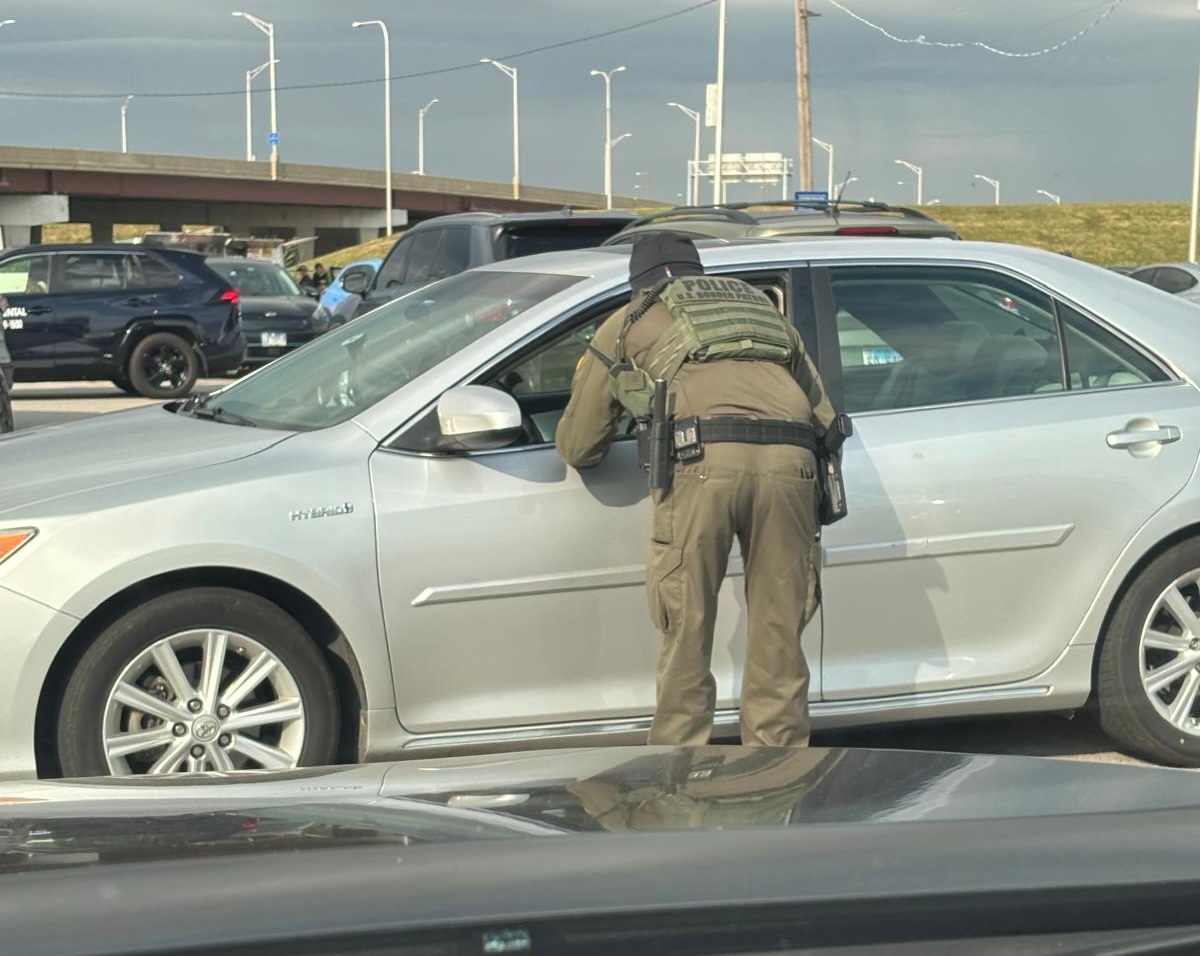The rideshare driver waiting areas at O’Hare International Airport are typically bustling centers with restrooms, food trucks, and spaces for religious worship. At any given time, as many as 70 Uber and Lyft drivers can usually be found parked in one of two designated lots.
But in recent weeks, these waiting areas have been virtually empty—even during peak travel times—as widespread fear grips drivers. The cause: repeated incidents of federal agents abducting drivers with legal work permits from their cars and disappearing them to immigration jails or fast-track deportation flights.
## Raids in the Rideshare Lots
Between October 10 and November 4, federal agents targeted the rideshare driver parking lots on at least ten separate days, according to interviews with multiple drivers and video reviewed by the Reader. In some cases, agents with U.S. Border Patrol or Immigration and Customs Enforcement (ICE) returned to the lots multiple times in a single day, taking as many as ten to twenty people each time.
“I could be a citizen or be a resident, but me being Hispanic and cinnamon color, they could [still detain] me,” says Emmanuel Martinez, a rideshare driver of eight years who relies on airport pickups and drop-offs. Martinez shares he doesn’t know when he’ll feel safe returning to the lots. “It’s gonna be a while,” he says.
## Attempts to Improve Security
The Illinois Drivers Alliance worked with the City of Chicago to hire 24/7 security and install signs making clear the lots cannot be used for civil immigration enforcement. Still, the raids have continued unabated. City-hired security guards remain in their cars during raids, telling drivers they don’t have the authority to enforce the signs or physically stop federal agents.
“These are not targeted raids,” says Lori Simmons, lead organizer of the Chicago Gig Alliance, the rideshare worker organizing arm of the People’s Lobby. “[Federal agents] don’t know who these people are ahead of time. I think they just have gotten wind that that’s where rideshare drivers are, and they probably have learned that they are a mostly immigrant population.”
The raids are often abrupt and aggressive. Drivers have been left scared, confused, and in tears after seeing friends with temporary protected status, asylum status, refugee status, or green cards disappear.
## Nowhere to Escape
“The issue is that there is nowhere to escape once they begin, because there is only one point of entry and exit at these lots,” says Lenny Sanchez, director of the Illinois chapter of the Independent Drivers Guild. On multiple occasions, drivers who tried to flee jumped the chain-link fence bordering the lot, only to be stopped by Border Patrol agents waiting in trucks nearby.
On October 20, the first day city-hired security guards were stationed at the lots, federal agents began stopping rideshare drivers just outside the waiting area. Less than a week later, they were back inside the lots, moving from car to car and ignoring security presence altogether.
## Grassroots Support and Challenges
Illinois Drivers Alliance organizers set up a watch calendar to monitor the O’Hare rideshare lots around the clock, alerting drivers to raids and supporting them afterward. Drivers share information, write down license plate numbers, and try to find out who has been taken. Sanchez and Simmons then notify the wider community of drivers via forums like WhatsApp and Facebook—but it’s impossible to reach everyone.
Sanchez says many drivers double-park while waiting to pick up riders, and in several instances, he saw Chicago police ticketing the cars of people who had been abducted. Soon after, airport officials towed the vehicles away, leaving other cars abandoned in the parking lot for days. During one abduction, a man from Venezuela threw his car keys to a nearby driver, promising he’d call his cousin to collect them when he could.
Organizers say it’s often difficult to determine who agents have taken. Sanchez recalls searching two abandoned cars for any identifying information to no avail; one contained a Barbie and sandals, likely belonging to a young girl.
## Ongoing Uncertainty for Drivers
Bailey Koch, spokesperson for the Illinois Drivers Alliance and communications director for SEIU Local 1—a union helping to organize rideshare drivers—explains: “It’s pretty vague on who’s being detained, where they are being taken, what is happening to their vehicle when they are taken, when they’re calling a tow truck to get it, and where their car is going.”
Many believe the choice to target drivers—who are required by the apps to have legal work authorization in the U.S.—amounts to racial profiling. “Donald Trump needs the numbers,” Sanchez says. “It’s a low-hanging fruit. It’s like shooting fish in a barrel. Seventy percent of rideshare drivers are immigrants or first-generation descendants of immigrants, so they know they’re able to snatch up a lot of people that haven’t been here for two years and could be eligible for expedited deportation.”
Uber requires users to provide a Social Security number before creating an account. Lyft allows drivers to create an account with a temporary identification number, provided they’ve held a license for at least a year.
## Efforts to Educate and Support
The Illinois Drivers Alliance and the Illinois Coalition for Immigrant and Refugee Rights are hosting virtual know-your-rights training sessions in English, Spanish, and Arabic for rideshare drivers and their families. Organizers help drivers create emergency plans, set up power of attorney, and encourage them to memorize important phone numbers in case they’re detained.
All the while, alliance member groups ensure there is continuous on-the-ground documentation of federal raids and offer comfort to drivers amid the chaos.
## Essential Workers Living in Fear
Regardless of their immigration status, rideshare drivers now work in fear. “The raids that have been happening have caused complete chaos, and not only for the rideshare drivers,” says Koch. “They don’t just take people to and from the airport. Drivers handle essential needs for our families—bringing our kids to school, getting us to work. People utilize rideshare drivers to get to the emergency room because it’s often more affordable than calling 911. So, they’re really essential to all of it.”
https://chicagoreader.com/news/border-patrol-ice-ohare-airport-raid/



